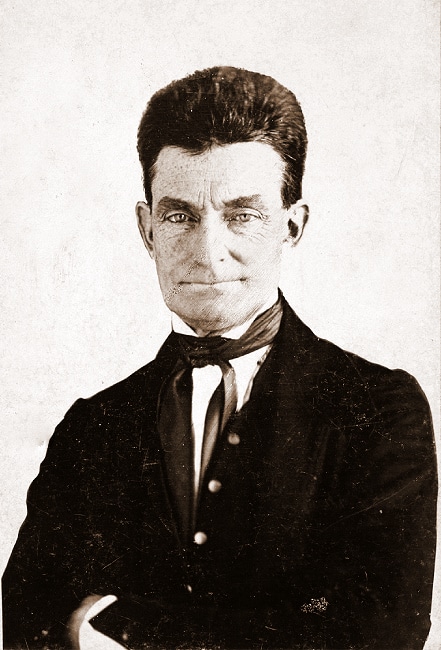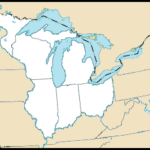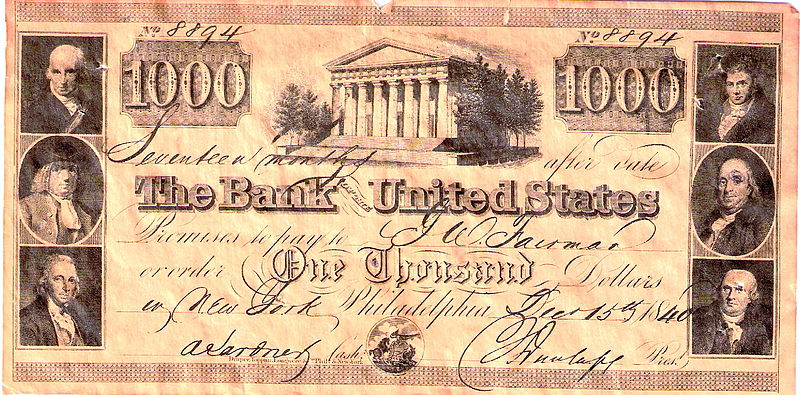
John Brown was a radical abolitionist who believed that the only way to abolish slavery was to arm slaves and to spur their insurrection. To successfully respond to John Brown APUSH questions, it is important to know the effects John Brown’s actions had on pro and antislavery voices, and to look especially at his raid on Harpers Ferry.
Who is John Brown?
John Brown was a northern abolitionist who moved about the country supporting antislavery causes, which included giving land to fugitive slaves and participating in the Underground Railroad. He was unsatisfied with the results of the peaceful protests of the mainstream abolitionist movement and became a violent radical for the cause. In 1855, Brown and his sons moved to Kansas where they took part in guerrilla warfare during the Bleeding Kansas crisis, murdering five pro-slavery settlers.
John Brown’s actions in Kansas brought him national attention. He moved to Virginia and began hatching an elaborate plot to fund an army that would raid Harpers Ferry, arm slaves, and begin an uprising. Brown led 21 men on his raid, where they attacked and occupied the federal armory for two days. Brown’s army was surrounded and many of his men were killed. Brown himself was eventually captured, charged of murder, conspiring, and treason, and hanged.
Important years to note for John Brown:
- 1856: John Brown murders five proslavery settlers in Kansas during the Bleeding Kansas crisis
- 1859: John Brown raids Harpers Ferry
Why is John Brown so important?
John Brown was a divisive figure. His ideas attracted many abolitionists who were no longer content with the institution of slavery and grew impatient for emancipation. He remained, however, a radical figure, and his methods, especially after the Harpers Ferry attack, were condemned by mainstream abolitionists. Southern Democrats and other pro-slavery Americans, however, were convinced that Brown was acting on the behest of Republicans, and that his Harpers Ferry raid was just the beginning of an advanced abolitionist plot to overthrow the system of slavery. John Brown’s actions likely hastened the coming of war, as they emboldened northern abolitionists and convinced those with an interest in slavery that if republicans took control of the government slavery in the South would be ended.
What are some historical people and events related to John Brown?
- Bleeding Kansas: The crisis that followed the passing of the Kansas-Nebraska Act. Fighting ensued as Kansas citizens fought over whether or not the territory would be a free or slave state.
- Robert E. Lee: Led the military forces that captured Brown at Harpers Ferry.
What example question about John Brown might come up on the APUSH exam?
“The newspapers seem to ignore, or perhaps are really ignorant of the fact, that there are at least as many as two or three individuals to a town throughout the North who think much as the present speaker does about him and his enterprise. I do not hesitate to say that they are an important and growing party. We aspire to be something more than stupid and timid chattels, pretending to read history and our Bibles, but desecrating every house and every day we breathe in. Perhaps anxious politicians may prove that only seventeen white men and five Negroes were concerned in the late [raid on Harpers Ferry]; but their very anxiety to prove this might suggest to themselves that all is not told. Why do they still dodge the truth? They are so anxious because of a dim consciousness of the fact, which they do not distinctly face, that at least a million of the free inhabitants of the United States would have rejoiced if it had succeeded. They at most only criticize the tactics.”
-“A Plea for Captain John Brown” by Henry David Thoreau, 1859 (Source)
Thoreau’s assessment of Harpers Ferry seems to support
A) the Democrats’ assertion that slavery should be a matter of popular sovereignty.
B) the Republicans’ conviction that John Brown’s actions were fair and just.
C) the South’s fears that the North aimed not to contain slavery, but to end it.
D) the North’s concern that the South would secede over John Brown’s actions.
Answer:
The correct answer is (C). After John Brown’s raid on Harpers Ferry, Southern Democrats and others with a stake in the institution of slavery feared that it was a sign of the insurrection to come. Republicans insisted that they did not condone Brown’s actions, but abolitionists like Thoreau came out in support of Brown and stoked the South’s fears that, should the northern Republicans win Congress and the White House, slavery would be ended.





